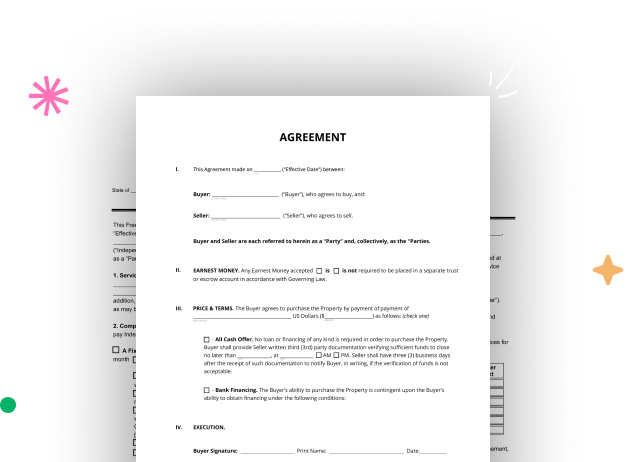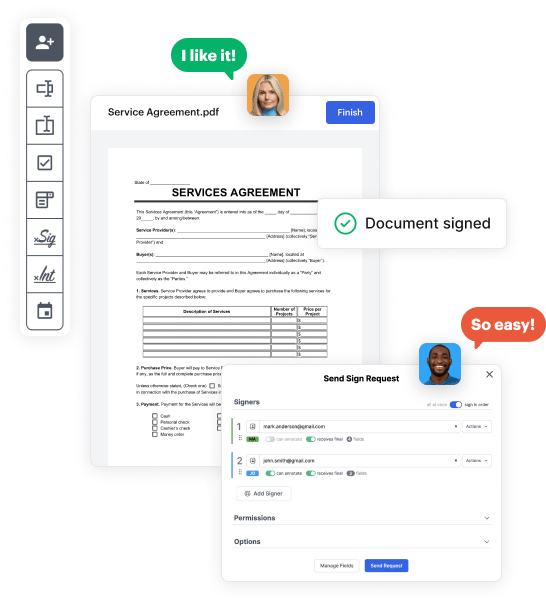

Navigate to the DocHub website and sign up for the free trial. This gives you access to every feature you’ll require to create your Connecticut Rental Law without any upfront cost.
Sign in to your DocHub account and go to the dashboard.
Click New Document in your dashboard, and select Create Blank Document to design your Connecticut Rental Law from scratch.
Add various elements such as text boxes, radio buttons, icons, signatures, etc. Arrange these fields to suit the layout of your form and designate them to recipients if needed.
Organize your form effortlessly by adding, moving, removing, or merging pages with just a few clicks.
Transform your newly designed form into a template if you need to send many copies of the same document repeatedly.
Send the form via email, share a public link, or even post it online if you aim to collect responses from more recipients.